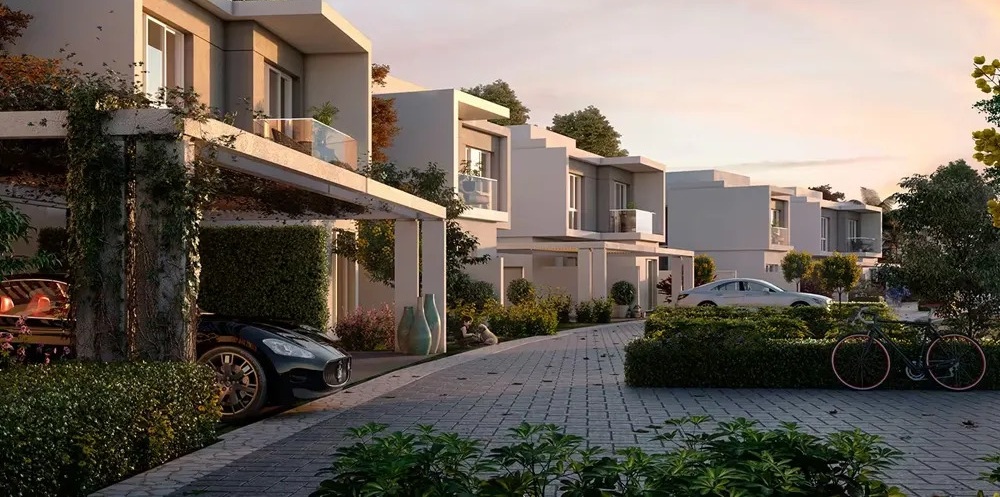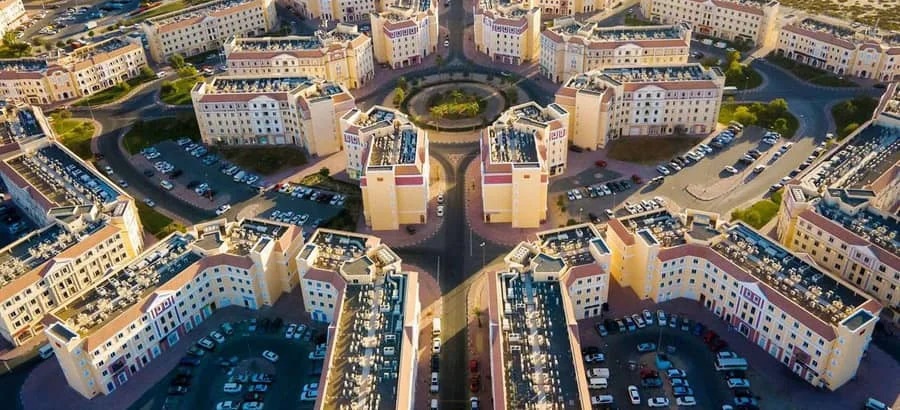Smart Parking, Smart Roads: Exploring Dubai’s Digital Infrastructure
Saturday, 10 May 2025
Dubai is globally recognized as a leader in innovation, and its commitment to building a future-ready urban environment is reflected in the development of its cutting-edge digital infrastructure. As part of the city’s Smart City Vision and the Dubai 2040 Urban Master Plan, Dubai is transforming urban mobility through its digital road systems and smart parking solutions. These technologies are designed to enhance transportation efficiency, safety, and sustainability by utilizing advanced systems like the Internet of Things (IoT), Artificial Intelligence (AI), and big data analytics.
This blog explores how Dubai is pioneering digital infrastructure, particularly in smart parking and smart roads, and how these systems are set to shape the future of urban mobility.
Table of Contents
- Smart Parking in Dubai: Innovation on Every Corner
- Innovative Road Technologies: Shaping the Future of Urban Mobility
- Frequently asked questions
Smart Parking in Dubai: Innovation on Every Corner
In a city where time is precious and space is a premium commodity, parking has traditionally been a challenge—especially in densely populated or high-traffic areas. However, thanks to the adoption of intelligent parking solutions, this once-frustrating experience is being completely transformed.
How Smart Parking Systems Work
At the core of Dubai’s smart parking ecosystem are sensor-driven technologies installed in individual parking bays—either embedded into the ground or fixed on light poles. These sensors detect whether a spot is occupied or vacant and instantly relay that data to a central control system. Drivers can then access this real-time information through digital signage or mobile apps, enabling them to locate available spots without the usual guesswork.
Key Benefits of Smart Parking
- Efficient Use of Space: With precise data on available parking, the city optimizes its current infrastructure without needing to build more lots or decks.
- Reduced Congestion: Less circling and idling translates into smoother traffic flow and shorter commutes.
- Sustainability: By cutting down on vehicle emissions caused by prolonged parking searches, smart parking helps support Dubai’s green goals.
- Driver Convenience: Mobile apps allow users to reserve spots in advance and make digital payments—no coins, no tickets, no stress.
These systems are particularly valuable in high-demand zones like Downtown Dubai, Business Bay, and near public transport hubs, where finding a space quickly can be a daily concern.
The Broader Impact
Dubai’s shift to smart parking is more than just a tech upgrade—it’s part of a comprehensive plan to build smarter, more efficient urban ecosystems. With traffic flow smoother and parking stress minimized, the city is creating a more livable, accessible environment that prioritizes both convenience and sustainability.
Looking forward, advancements like artificial intelligence and machine learning are expected to further enhance smart parking, allowing for predictive space availability, dynamic pricing, and even automated vehicle integration. Dubai is not just keeping up with innovation—it’s helping define it.
Innovative Road Technologies: Shaping the Future of Urban Mobility
Dubai’s road systems are undergoing a digital transformation, aligning with the city’s Smart City Vision. The integration of smart technologies into its roads is part of Dubai’s broader goal to enhance urban mobility, ensure sustainability, and establish the city as a global leader in technological infrastructure.
What Are Smart Roads?
Smart roads are next-generation infrastructures that integrate a range of advanced technologies like IoT sensors, AI-driven algorithms, and vehicle-to-infrastructure (V2I) communication. These roads are designed to improve traffic flow, safety, and environmental sustainability by adapting to real-time conditions such as traffic volume, weather, and accidents.
Key Features of Smart Roads:
- IoT Sensors: These sensors monitor traffic, weather conditions, and road safety, providing real-time updates for both vehicles and infrastructure.
- Vehicle-to-Infrastructure (V2I) Communication: This allows vehicles to communicate with road systems, enabling optimized routing and traffic flow management.
- Dynamic Lane Management: Roads can adjust lane allocation and speed limits based on traffic patterns, easing congestion.
- AI-Driven Safety Alerts: AI systems automatically detect hazards such as accidents or adverse weather and alert drivers in advance to mitigate risks.
Dubai’s Vision for Smart Roads and Mobility
Dubai’s development of smart roads is deeply integrated with the city’s Smart City initiative, which is designed to make urban living more sustainable, efficient, and comfortable for residents and visitors alike. This aligns with the Dubai 2040 Urban Master Plan, which envisions a city where technology improves everyday life.
Key Goals of Smart Roads in Dubai:
- Enhanced Mobility Efficiency: Smart roads are designed to minimize traffic congestion, optimize routes, and improve overall travel times, making commuting in the city more efficient.
- Sustainability: By encouraging eco-friendly transportation options, such as electric vehicles (EVs), the smart road systems contribute to reducing the city’s carbon footprint, aligning with Dubai’s green goals.
- Global Leadership: Dubai’s efforts aim to set a global benchmark for road innovation, inspiring other cities worldwide to adopt similar technologies for improved urban mobility and sustainability.
Technologies Powering Smart Roads in Dubai
Dubai’s smart road infrastructure is powered by an advanced ecosystem of connected technologies that ensure smooth and efficient transport.
IoT and Connectivity:
- Road Monitoring: Embedded sensors collect data on traffic conditions and environmental factors, enabling the city to adjust traffic management systems dynamically.
- Smart Signage: Digital signs provide drivers with real-time information about road conditions, such as traffic delays, accidents, or alternative routes.
- Connected Vehicles: Real-time data exchange between vehicles and infrastructure enhances commutes and helps drivers make better-informed travel decisions.
AI and Machine Learning:
- Traffic Flow Optimization: AI systems predict and adjust traffic light patterns to minimize congestion, improving overall traffic flow.
- Predictive Maintenance: AI detects road damage before it becomes a serious issue, reducing maintenance costs and minimizing road disruptions.
- Safety Improvements: Machine learning algorithms analyze data from sensors to provide warnings about potential accidents or dangerous road conditions.
Autonomous Vehicle Integration:
Dubai’s ambition for 25% of all transportation to be autonomous by 2030 is heavily reliant on the smart road infrastructure. These roads are designed to support self-driving cars with systems that allow for seamless interaction with vehicles and infrastructure.
Sustainability and Environmental Benefits of Smart Roads
Dubai’s smart roads are designed with sustainability at the forefront, addressing environmental challenges while improving efficiency.
Energy Efficiency:
- Solar-Powered Lighting: Roads are equipped with solar-powered lights, significantly reducing energy consumption.
- Dynamic Lighting: Streetlights automatically adjust based on traffic, reducing unnecessary energy usage.
Environmental Impact:
- Urban Heat Island Mitigation: Specialized materials used in road construction reflect heat, keeping urban areas cooler, especially in Dubai’s harsh desert climate.
- Flood Management: With advanced drainage systems in place, smart roads reduce the risk of flooding during Dubai’s infrequent but intense rainstorms.
Reducing Carbon Footprints:
- Optimized Traffic Flow: By reducing congestion, smart roads help lower carbon emissions, contributing to a cleaner environment.
- Electric Vehicle Support: Smart roads support electric vehicle infrastructure, including charging stations, further promoting eco-friendly transport.
Economic and Social Benefits
Dubai’s investment in smart roads and digital infrastructure brings a host of economic and social advantages.
Economic Advantages:
- Cost Savings: Predictive maintenance systems reduce the need for costly repairs and frequent road closures.
- Increased Tourism: Efficient road systems enhance the visitor experience, making it easier to navigate popular attractions and tourist spots.
- Job Creation: The development and maintenance of smart infrastructure create opportunities in tech, engineering, and urban planning sectors.
Social Benefits:
- Improved Road Safety: AI-driven safety systems reduce accidents by providing early warnings about hazards on the road.
- Enhanced Accessibility: Smart roads are designed to cater to all users, including pedestrians and cyclists, ensuring safer and more inclusive mobility.
- Quality of Life: By reducing travel time and lowering pollution levels, smart roads contribute to healthier, more livable urban environments.
Dubai is paving the way toward the future of urban mobility with its investment in smart parking and smart road technologies. These innovations are transforming the city’s infrastructure, making it more efficient, sustainable, and connected. As Dubai continues to lead the charge in digital infrastructure, its approach to smart roads and parking systems sets a model for other cities to follow in creating a smarter, greener, and more efficient urban environment.
Frequently Asked Questions (FAQs)
What is a smart parking system?
A smart parking system uses technologies like sensors, mobile apps, and data analytics to help drivers find available parking spots in real time. It also offers features like digital payments, booking in advance, and live parking availability updates.
How do smart roads work?
Smart roads are equipped with sensors, AI algorithms, and communication networks that gather and analyze real-time data to manage traffic flow, monitor weather and road conditions, and interact with vehicles to ensure safer and more efficient travel.
What are the benefits of smart parking in Dubai?
Smart parking reduces traffic congestion, saves time, lowers carbon emissions, and improves overall urban mobility. It also enhances user convenience through digital payments and pre-booking features.
Is Dubai using smart roads for autonomous vehicles?
Yes, Dubai is actively developing smart road infrastructure that supports autonomous vehicles, in line with its goal to make 25% of all transportation autonomous by 2030.
Can I pay for smart parking using my smartphone?
Absolutely. Most smart parking systems in Dubai support mobile apps that allow users to pay digitally, eliminating the need for cash or parking meters.
How do smart roads contribute to sustainability?
Smart roads help reduce pollution by optimizing traffic flow, minimizing idling, using energy-efficient lighting, and supporting electric vehicle infrastructure like charging stations.
Are smart parking systems available across Dubai?
Smart parking is gradually being rolled out across Dubai, particularly in busy districts, malls, business hubs, and residential areas with high vehicle density.
Who manages smart transportation projects in Dubai?
The Roads and Transport Authority (RTA) is the key body responsible for planning and implementing smart infrastructure projects, including smart parking and road systems.





